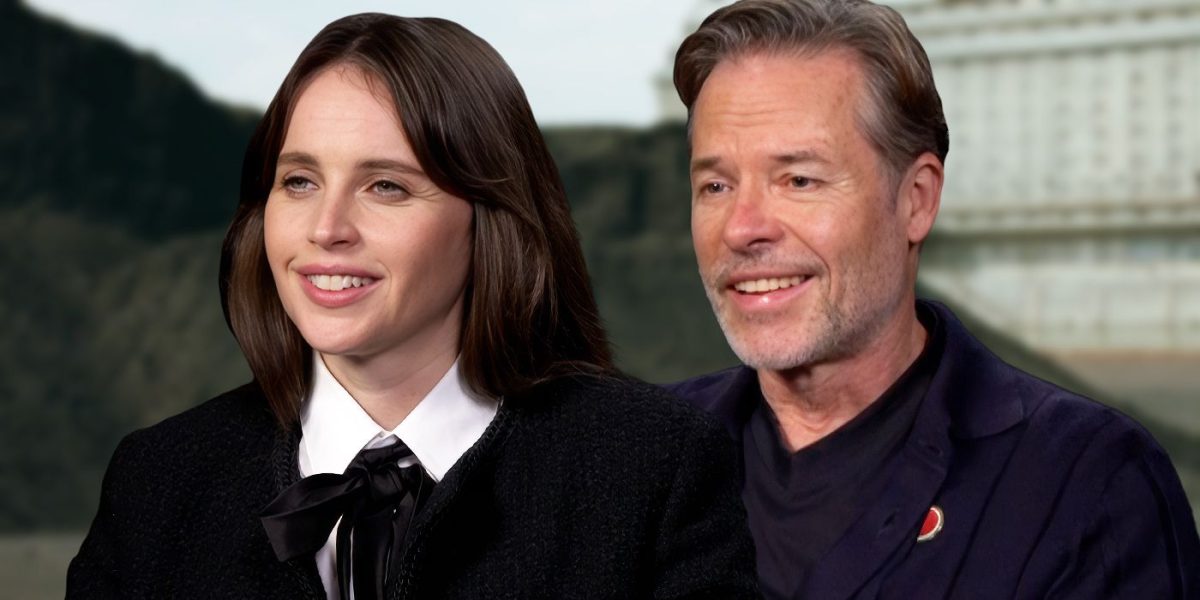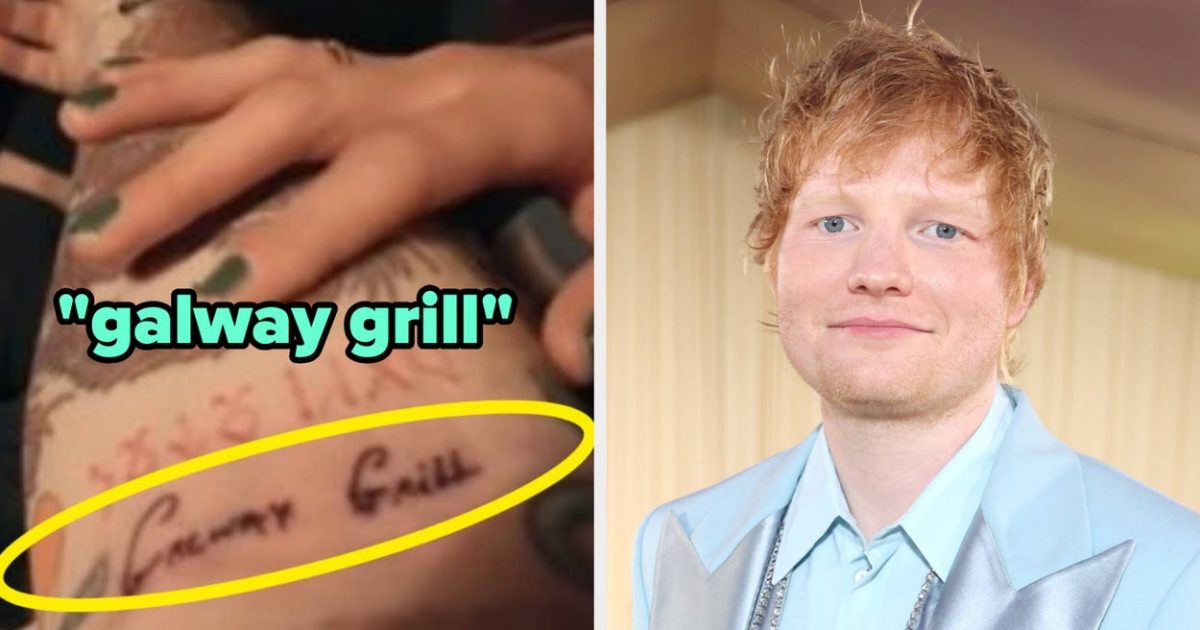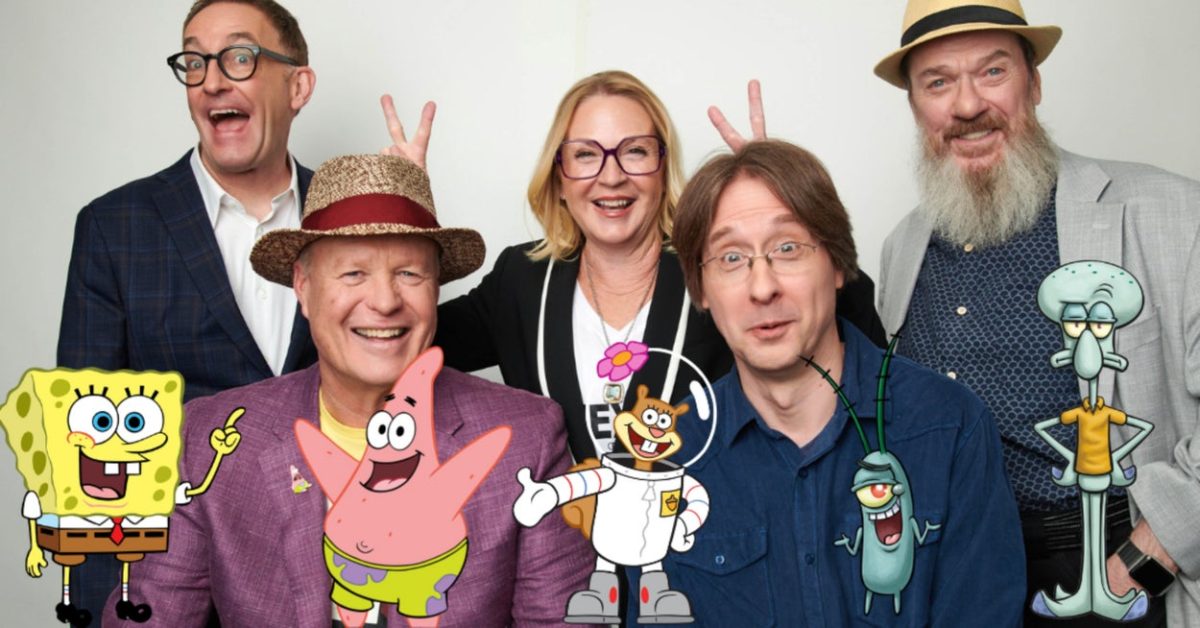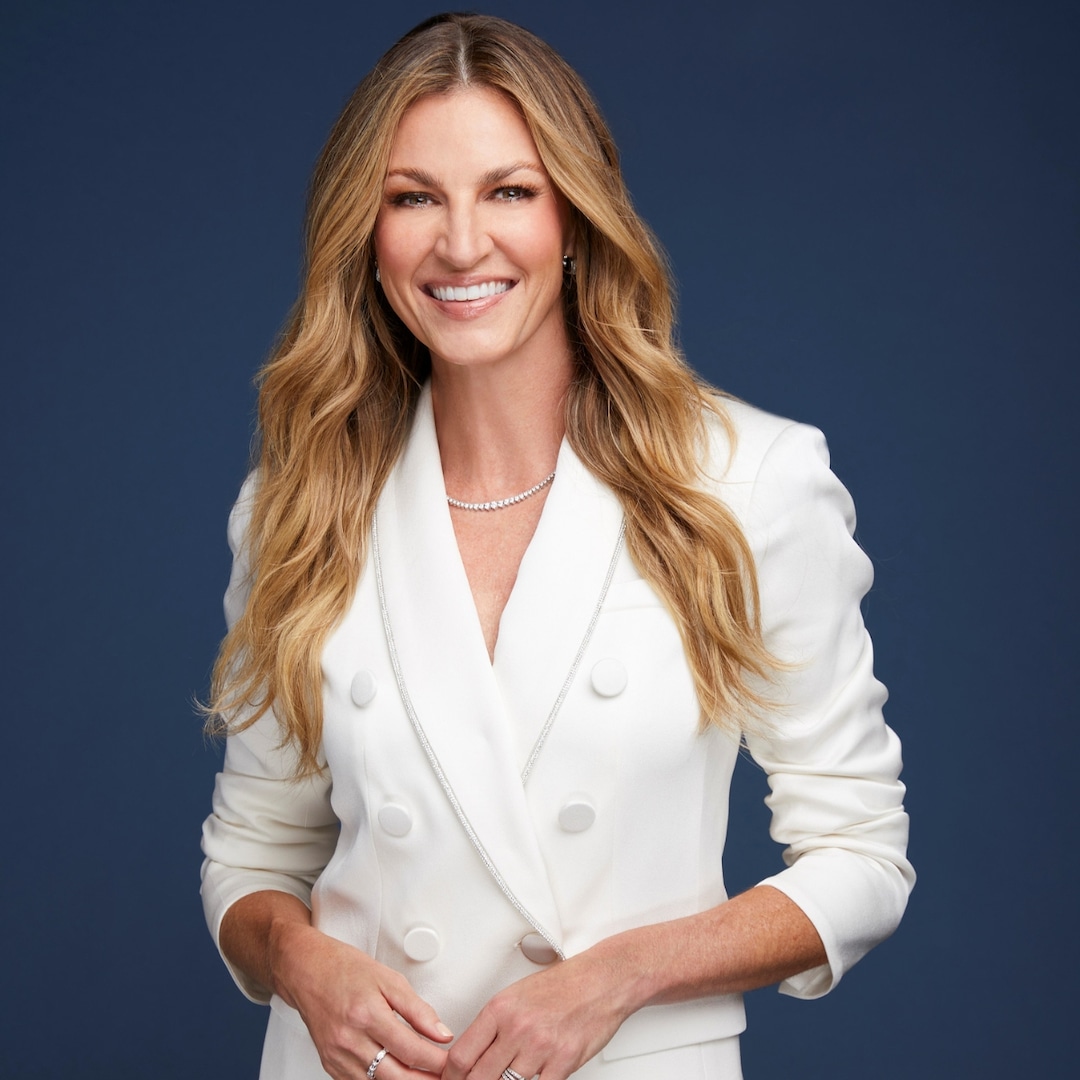
“I’m the One In Control” – ‘The Brutalist’s Guy Pearce and Felicity Jones Reveal What We Don’t See On-Screen
Dec 22, 2024
Summary
Collider’s Perri Nemiroff sits down with The Brutalist’s Felicity Jones and Guy Pearce.
The Brutalist, directed by Brady Corbet, follows the immigrant experience of Hungarian-Jewish architect László Tóth, played by Adrien Brody.
In this interview, Jones and Pearce discuss Brody’s performance, their approach to their characters and relationships in the film, and working with Corbet to realize his epic vision.
Since its World Premiere at the Venice International Film Festival, director Brady Corbet’s third feature film, The Brutalist, has been buzzing with critical acclaim. The nearly four-hour epic is a hot contender for Best Picture that offers a poignant deconstruction of the American Dream. Starring Adrien Brody as László Tóth, a Hungarian-Jewish immigrant with a mighty talent, The Brutalist is an exploration of trauma and the struggle of rebuilding.
After immigrating to America, the praise for Tóth’s architecture earns him favor with the wealthy Harrison Lee Van Buren, played by Guy Pearce, who commissions him to construct a building that will put their town on the map. In return, Tóth’s wife, Erzsébet, played by Felicity Jones, and their niece, Zsófia (Raffey Cassidy), are brought to live with him in America, though their separation after escaping the war has caused a rift between them and left lasting effects on them all.
In this interview with Collider’s Perri Nemiroff, Pearce and Jones share insight into their characters and their relationships in the film, discuss playing off of Brody’s performance and how it offered different approaches to their own, as well as what it’s like working with Corbet on his vision. You can watch the full conversation in the video above or read the transcript below.
Adrien Brody’s Performance Helped Inform His Co-Stars’ Approach
“He’s just so good at what he does.”
27:56
Related
“They’re Having to Rediscover That Connection They’ve Dreamt About”: Felicity Jones Explains Why That ‘The Brutalist’ Intermission Photo Is So Important
On Collider Ladies Night, Jones revisits ‘Like Crazy’ and ‘Amazing Spider-Man 2,’ and discusses her collaboration with Brady Corbet on ‘The Brutalist.
PERRI NEMIROFF: I have a bunch of collaboration questions for you two. I’ll start with Adrien. I know you have a great script to work with, but I always find when your character is so tethered to another, there’s great opportunity to find who your character needs to be through them. What’s something about Adrien as a scene partner that helped you unearth something in your own character?
GUY PEARCE: He’s just so good at what he does. The thing that really stood out for me was that he’s playing László with an incredible sense of knowing who he is and with a great sense of confidence, which was fantastic for me because it highlighted the fact that the character I was playing actually doesn’t have that kind of confidence — he’s trying to construct it for himself. So, in a way, one of the things that I’m envious about with László is not just his skill as an artist but that he has this sort of self-possession, which I think makes Van Buren kind of envious.
FELICITY JONES: What I love about the dynamic between László and Erzsébet is it’s really tempestuous. They’re quite antagonistic with each other. They don’t actually let each other off the hook. There’s a real process when they haven’t seen each other for eight years when they first meet, of you seeing them trying to recalibrate who they are and what their relationship is. They’ve obviously gone through this enormous trauma, and then how do you build a relationship from that when you’re both just suffering so much? I think what I loved about it was there’s real humor in that dynamic. There’s a real humanity. You can feel the love because they’re actually quite honest with each other.
Image via Venice Film Festival
Guy, I was wondering if you had an anchor of sorts for him. He’s a character that has to put on a facade, and he’s got so many different qualities — he can be totally ferocious, there’s a little bit of a tenderness to him, and a multitude of others. When you’re playing someone like that, do you have to find a specific thing to lean on so that no matter what he’s doing, it’s always based in some sort of consistent truth?
PEARCE: Well, the notion of what he’s built for himself, he’s hanging on to that. He’s hanging on to this idea of, at any moment, needing to say, “This is who I am. I’m the one in control. I’m the one in charge. I’m the boss here. Let’s just not forget that I’m the boss here.” He’s hanging on to that, and I think he’s found a way to do that where he can be charming in that, as well. He sees the value in actually being engaging and warm and inviting people in, etc., etc., but just making sure that everyone knows that he’s the boss. So, as far as a tether, that’s the kind of thing that I suppose I was hanging onto. The great thing is, you only have to think about your insecurities for one second, and you know that they’re there, and they’re palpable, especially when you’re being so presentational. So yeah, it was an interesting role to play because of all of those elements.
Image via A24
That’s such an exhausting way of being.
JONES: I know, it’s so tiring.
PEARCE: Absolutely. “Exhausting” is a really good point, actually. I imagine he got in bed at night and went, “What a day…”
JONES: “Gotta do it again tomorrow.”
Going to the other key relationship for Erzsébet, Felicity, I want to talk a little bit about Raffey [Cassidey]. There was a particular quote you gave in our press notes that caught my eye that I wanted to follow up on. You said, “The two women have a communication and language that is special between them, something that goes beyond speech.” What is it like for the two of you creating that special type of communication when you don’t have traditional dialogue to lean on to convey it to the audience?
JONES: It’s so nice having that different aspect. Obviously, Zsófia is unable to speak because of the trauma that she’s gone through, so it was really interesting to build their dynamic. I think what you realize is whatever they’ve been through has meant that they’ve really had to hang on to each other. They are the emotional crutch to each other. So, actually, when Zsófia says that she’s going to go, she’s going to leave, for Erzsébet, she’s so much of her foundation, she almost crumbles at the thought of losing this person that she absolutely loves and adores. And in some ways, having someone to look after is what makes you so human. That’s what’s helped them survive, is having that need to look after one another. It’s very powerful.
Brady Corbet “Had a Great Confidence In Himself” On Set
The actor-turned-director created a compassionate environment free of judgment.
Image via A24
I also have to ask about working with [director] Brady [Corbet]. I watched this movie and I said to myself, “Nobody on the planet could have directed this movie but him.” Can you two tell me something you saw him do on set that speaks to that kind of singularity, something that made you say, “Yep, because you can do that, this movie is uniquely your own?”
PEARCE: I don’t know, it’s just the way in which someone would offer an idea, and he would just kind of go, “No, I don’t think so. No.” He just had a great confidence in himself, in what he knew, but he was also I was very warm about it.
JONES: Listening. And he lets people have a say. Everyone has their moment to say something, and he’s like a conductor. You each have your time, but he’s the umbrella, and he’ll bring it all together.
PEARCE: And he certainly let people try things. Absolutely. “Yeah. Give it a try. See.” And then come out of it and it either worked or didn’t work. So, he was very compassionate. He’s a great, sensitive soul.
Because you brought up the idea of trying something, can you each give me an example of a time on set when you tried something, maybe thought to yourself, “There’s no way they’re going to use it,” but now it’s in the finished film?
PEARCE: Oh, I can’t remember that sort of stuff, to be honest. I can never remember because it might just be about playing a mood longer than it was initially written or something like that. So, I don’t know.
JONES: I think he makes you feel very unjudged, which is interesting for a director. It can be such a judgmental place, and somehow, he makes you feel very comfortable.
What a freeing quality.
JONES: He makes it feel effortless.
PEARCE: He just wants authenticity. So, whether you do it like that or like that, whichever is going to be authentic is great.
JONES: Yeah, just be true.
Related
‘The Brutalist’ Review: Adrien Brody Gives His Best Performance in This Sprawling, Impressive Epic
Brady Corbet’s epic is one of the most stunning films you’ll see this year.
I wanted to make sure to end on this particular question because it’s something that Brady has spoken about, and I’ve gotten a little obsessed with it, especially on my rewatches of the movie. He was comparing architecture to filmmaking, and he said, “Architecture and filmmaking have a lot in common. The Brutalist, for me, was a way of talking about the more bureaucratic aspect of the artistic process.” Having made this film and explored that theme, has it made you rethink your own artistic process at all?
PEARCE: I don’t think it’s made me rethink mine. I feel like it’s slightly different on every job anyway, just because of who you play.
JONES: You have a whole new group of people.
PEARCE: Yeah, so not specifically, I don’t think.
JONES: You’re kind of always recalibrating, aren’t you? Because it’s such a different dynamic. As actors, we’re just gypsies, really. We kind of go around, and we visit different sets, and it’s a whole different group of people. You kind of have to adapt and read the situation.
PEARCE: I just want more directors to be like Brady.
JONES: I know. If only. I feel like you have to be quite prepared to be quite adaptable in some way.
The Brutalist opens in theaters on December 20.
Your changes have been saved
When visionary architect László Toth and his wife Erzsébet flee post-war Europe in 1947 to rebuild their legacy and witness the birth of modern America, their lives are changed forever by a mysterious and wealthy client.
Director
Brady Corbet
Cast
Adrien Brody
, Guy Pearce
, Felicity Jones
, Joe Alwyn
, Raffey Cassidy
, Stacy Martin
, Emma Laird
, Isaach De Bankole
, Alessandro Nivola
, Michael Epp
, Jonathan Hyde
, Peter Polycarpou
, Salvatore Sansone
, Ariane Labed
, Jeremy Wheeler
, Jaymes Butler
, Matt Devere
, Natalie Shinnick
, Stephen Saracco
, Peter Linka
, Robert Jackson
Writers
Brady Corbet
, Mona Fastvold
Expand
Get Tickets
Publisher: Source link
Celebs With Embarrassing Tattoo Mistakes Revealed
If read vertically from top to bottom and horizontally from right to left, which is how Japanese is read, the tattoo translates roughly to say "ring seven fingers." However, if the tattoo is read horizontally from left to right and then…
Dec 24, 2024
Bruce Willis’ Wife Emma Shares Family Photos Amid His Health Battle
Bruce Willis’ wife Emma Heming Willis is cherishing the good times. Almost two years after the Die Hard actor’s wife, his ex-wife Demi Moore, and his kids Rumer Willis, 36, Scout Willis, 33, Tallulah Willis, 30, Mabel Willis, 12, and Evelyn Willis, 10, announced that…
Dec 24, 2024
SpongeBob Cast Shares Heartfelt Favorite Episodes
I asked two main questions throughout our conversation. My first question: It's been 25 years of iconic quotes, hilarious episodes, and memorable moments. From the perspective of the people who voiced the characters and produced the show, is there a…
Dec 23, 2024
Erin Andrews Shares Her Celine Dion-Inspired Holiday Tradition
We interviewed Erin Andrews because we think you'll like her picks. Some of the products featured are from Erin's brand WEAR by Erin Andrews. Our writers and editors independently determine what we cover and recommend. When you buy through our links,…
Dec 23, 2024











